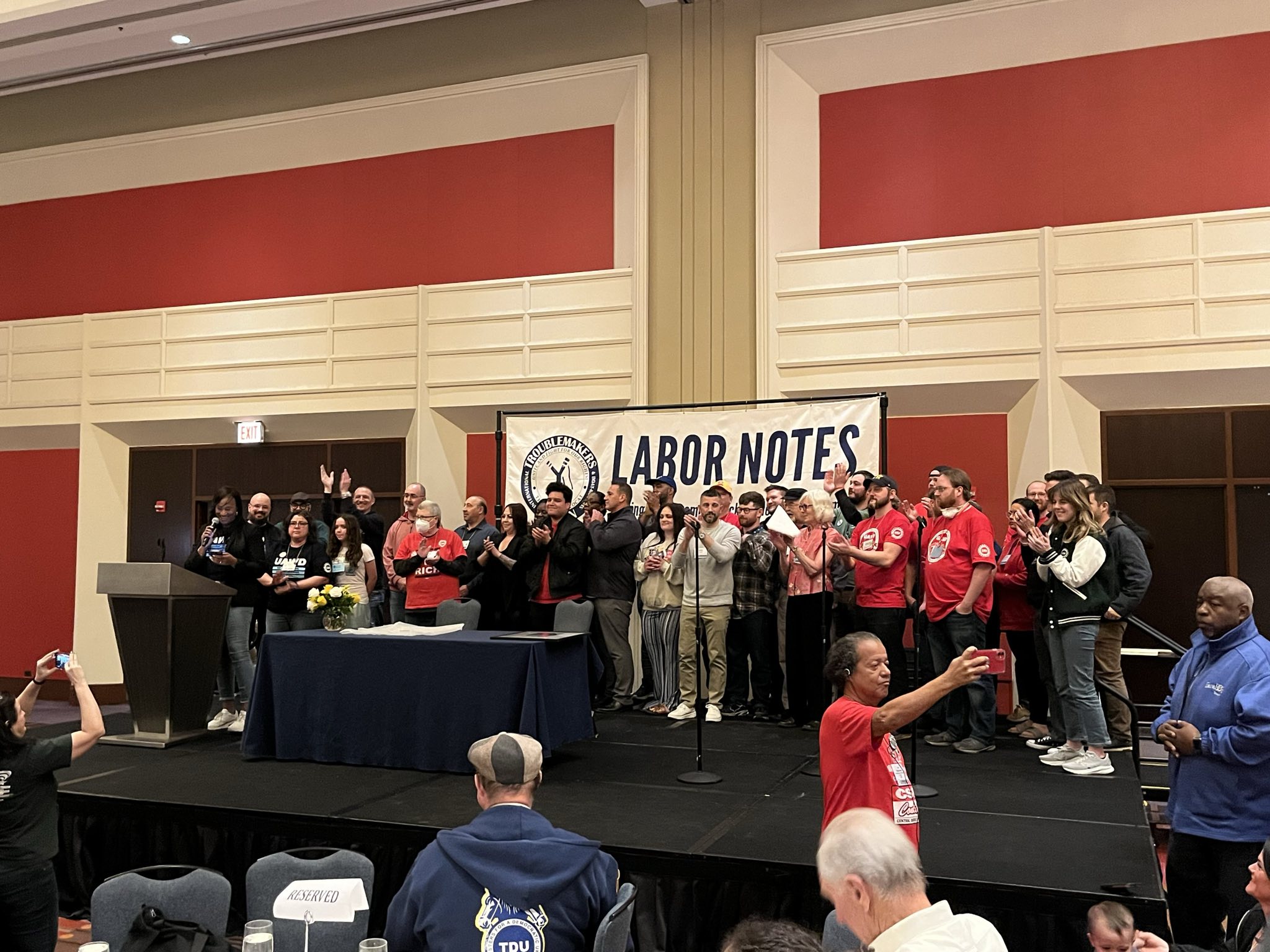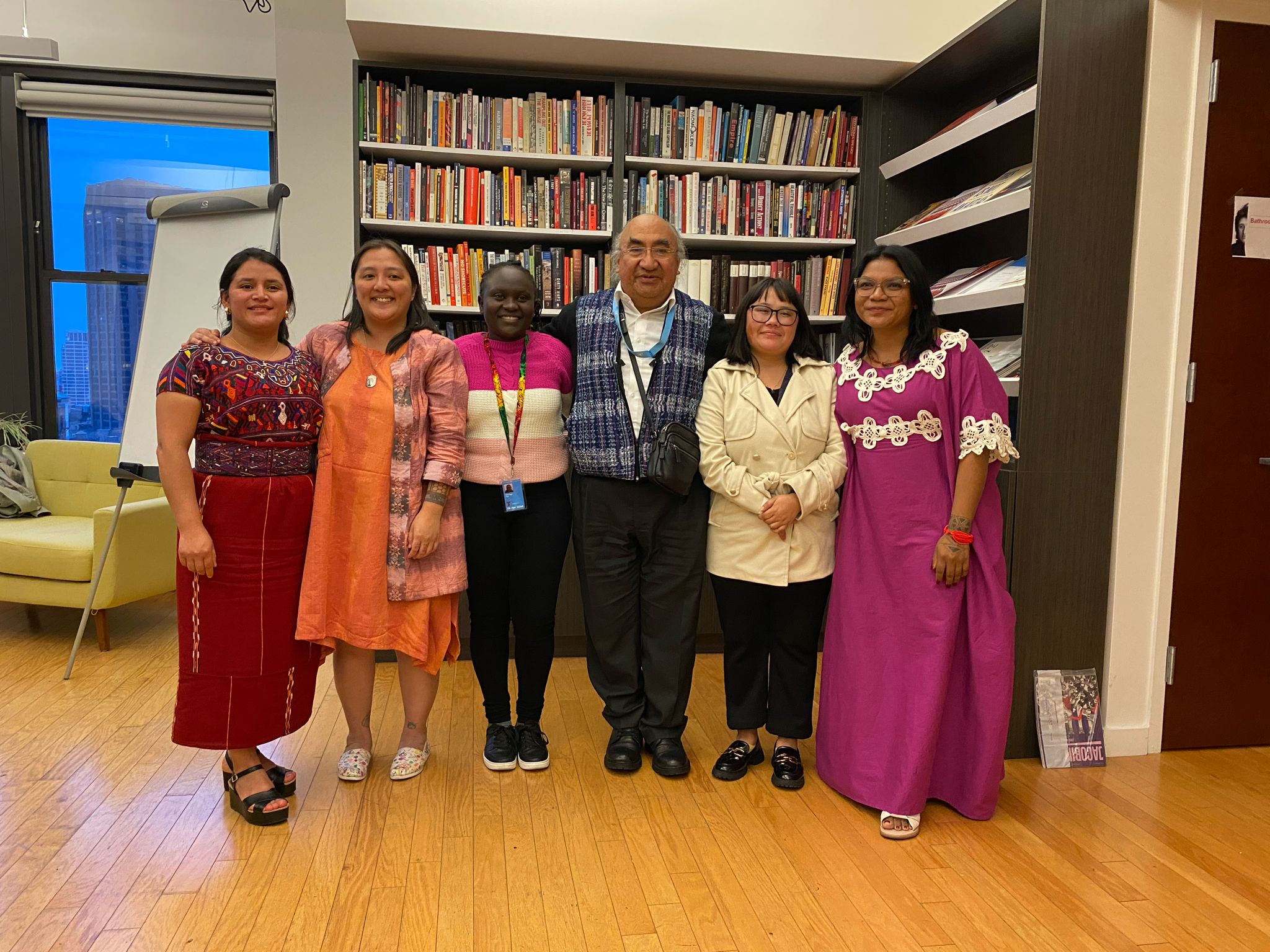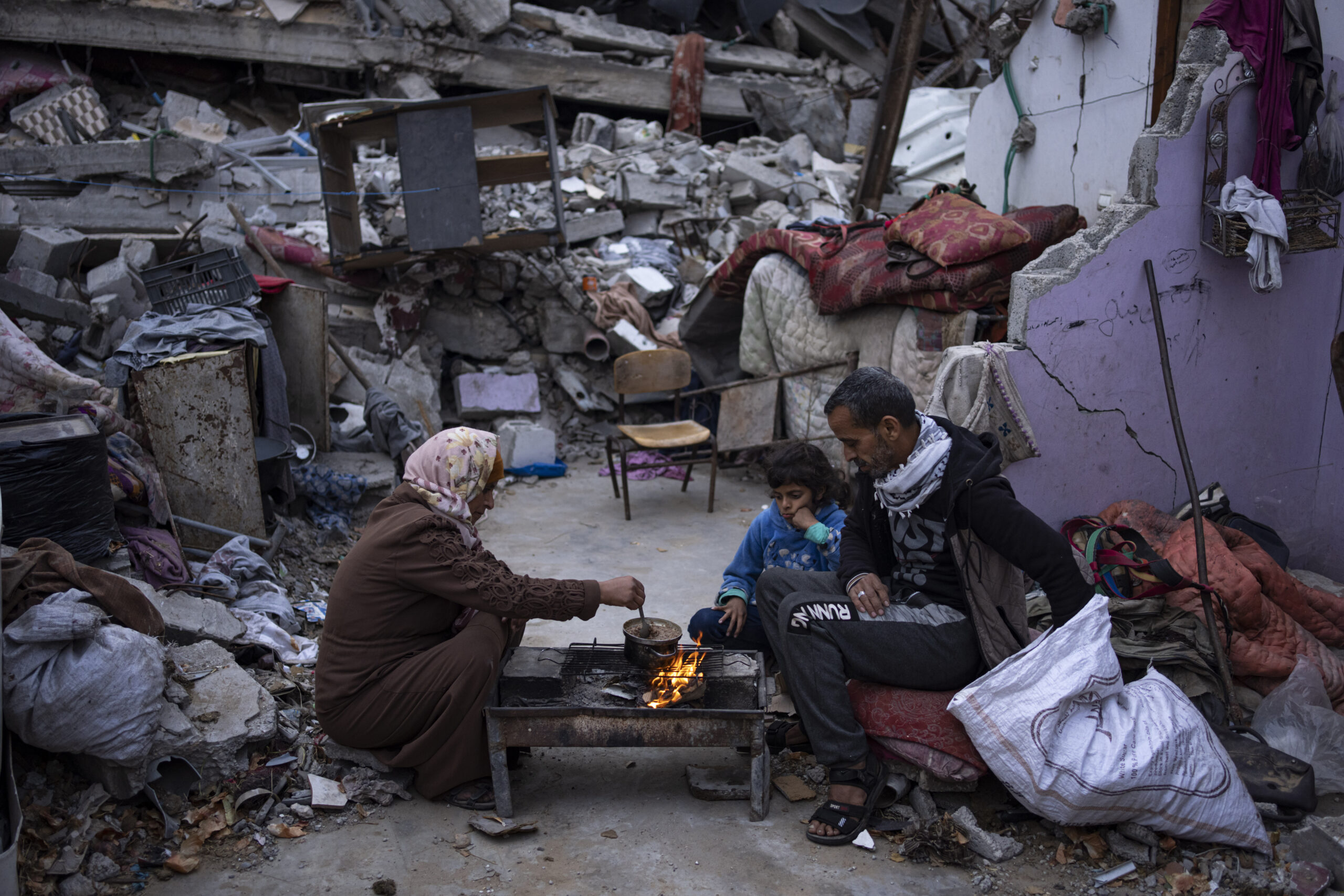To see photos from the event, please visit our Flickr page.
In the city of Los Angeles on December 11 and 12, 2018, RLS-NYC and the UCLA Labor Center co-hosted the “Trinational Labor Gathering,” bringing together left labor activists from Mexico, Canada, and the US to share information and strategies and craft transnational solidarity campaigns.
This was the sixth iteration of our cooperation with the UCLA Labor Center. Previous gatherings have taken place in Los Angeles as well as Toronto and Chicago. The many campaigns supported and other collaborations borne of these meetings have been described in labor journalist David Bacon’s rapporteur’s documents “Your Liberation Is Linked to Ours” (2015) and “Building Worker-to-Worker Solidarity” (2016). Last year’s gathering, focused on NAFTA, produced a tri-lingual resource document on “Alternatives to Free Trade and Investment Agreements.”
The title and subject of this year’s gathering—also co-hosted by the Canadian Steelworkers and United Electrical Workers—was “Gender, Migration, and Agricultural Supply Chains: A Tri-national Labor Response to Shifting Political Terrain.”
Against a political backdrop of rising xenophobia and horrific revelations of gender violence in the workplace—of threats of walls but also a rising tide of #metoo solidarity—we decided that it was an important time to explore political collaborations at this precise intersection. How can left labor activists across North America come together to stand up for migrant and women workers, both in the workplaces they represent and within their own organizational structures?
Over two full days of work at the UCLA Labor Center, situated in a vibrant and largely Central American neighborhood nestled between Downtown LA and Koreatown, this was the question that we posed.
Day One began with an update on NAFTA. While not the focus of this year’s gathering, we always seek to retain some continuity from one year to the next. With the “new NAFTA,” or USMCA, having since been agreed in principle by the three signatory countries, we discussed the implications for labor and migration policy going forward in each of the US, Mexico, and Canada. The conclusion? Well, in spite of a partial rollback of ISDS mechanisms, which we support, the rest does not look good.
From there, we moved on to our core topic for Day One: gender-based violence, as well as women’s rights more broadly, in the workplace. In our first panel session, representatives from the Canadian Labour Congress, Steelworkers, SEIU, and a maquiladora worker center discussed programs against gender violence in the workplace. After, we added voices from the National Domestic Workers Alliance, two smaller worker centers, and RLS-NYC to expand the conversation to include promoting equality of opportunity in workplaces… and labor organizations. Practicing what we preach was a key of the day’s discussion, as was the role of men in perpetuating violence but also in promoting solutions.
After several hours of rousing discussion, in the evening we changed locales, taking a bus down to UFCW Local 880’s activist center in the heart of LA’s meatpacking district. There, we held a public event for the local community on the recent election of Andres Manuel Lopez Obrador as President of Mexico. What should labor organizations and the broader left expect of his administration? How can we provide critical support while also holding him to account when he comes up short? Trade union representatives from several of Mexico’s independent unions spoke to these and related questions. The local people in attendance had all kinds of thoughts of their own. The evening was lively, starting with our community dinner and lasting well into the second hour of audience questions.
On Day Two, we shifted our focus, now bringing in organizations focused on migrant workers and transnational agricultural supply chains. In our first session of the day, we focused on agriculture worker organizing strategies, probing the intersection with migration particularly throughout the greater Pacific Region. How are the lives of farmworkers impacted by the huge rise in guestworker programs? On hand to answer these questions we had day laborers, labor activists, and representatives from a number of independent unions that have formed to address these abuses.
Afterward, the conversation shifted to discuss the future of organizing along transnational agricultural supply chains. When agribusinesses can simply shift operations from one country to another, how can we fight off their labor abuses? The short answer: organize transnationally!
In the afternoon, we broke out into working groups to develop our conversations from the two days into plans of action. In so doing, we were intentional about probing the intersections between the two areas. What role can migrant worker organizations play in advancing women’s rights at the workplace; and also: what role can women and gender justice movements play in strengthening farmworker organizing?
Over the course of the afternoon, a half dozen plans were made, ranging from small-scale solidarity initiatives to a broad push around women’s rights at the International Labour Organization. A follow-up meeting was scheduled for Tijuana in February to discuss details. Facebook pages and WhatsApp groups were created. We can never be sure exactly what will come from these sorts of connections, much like when we scatter seeds across a fertile field. But we feel confident that something beautiful will grow. Stay tuned for the next developments from our work as part of the Trinational Labor Gathering.



